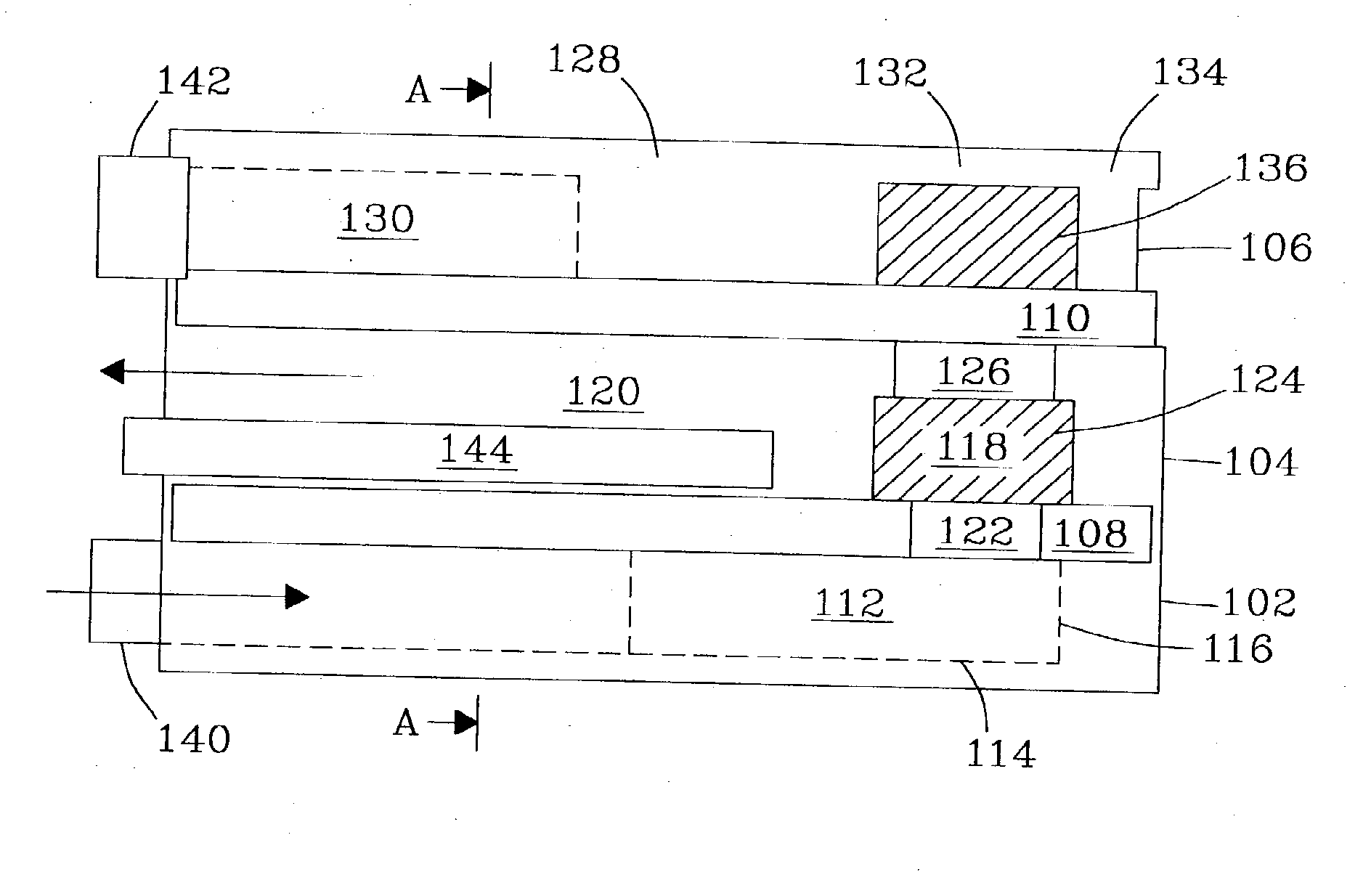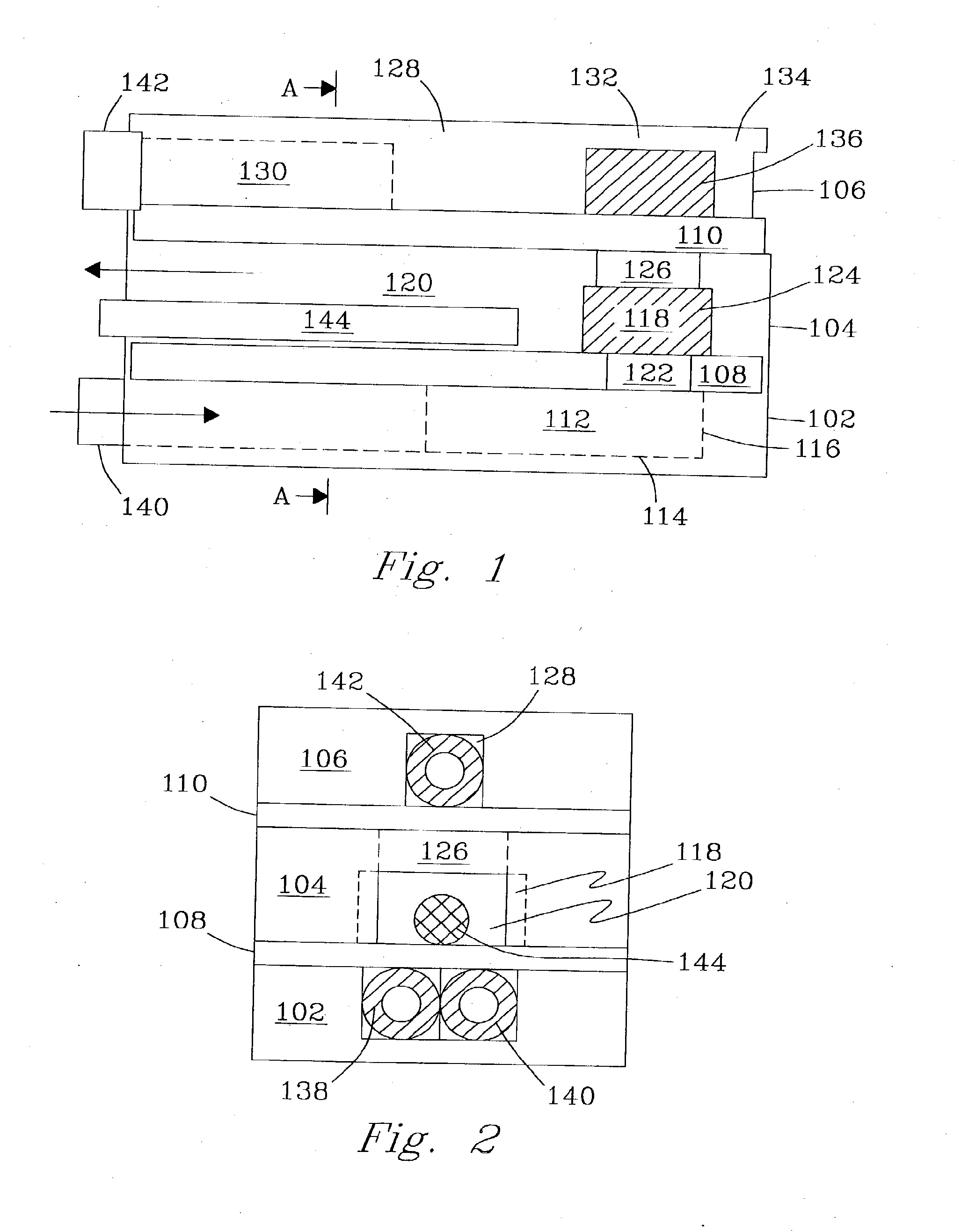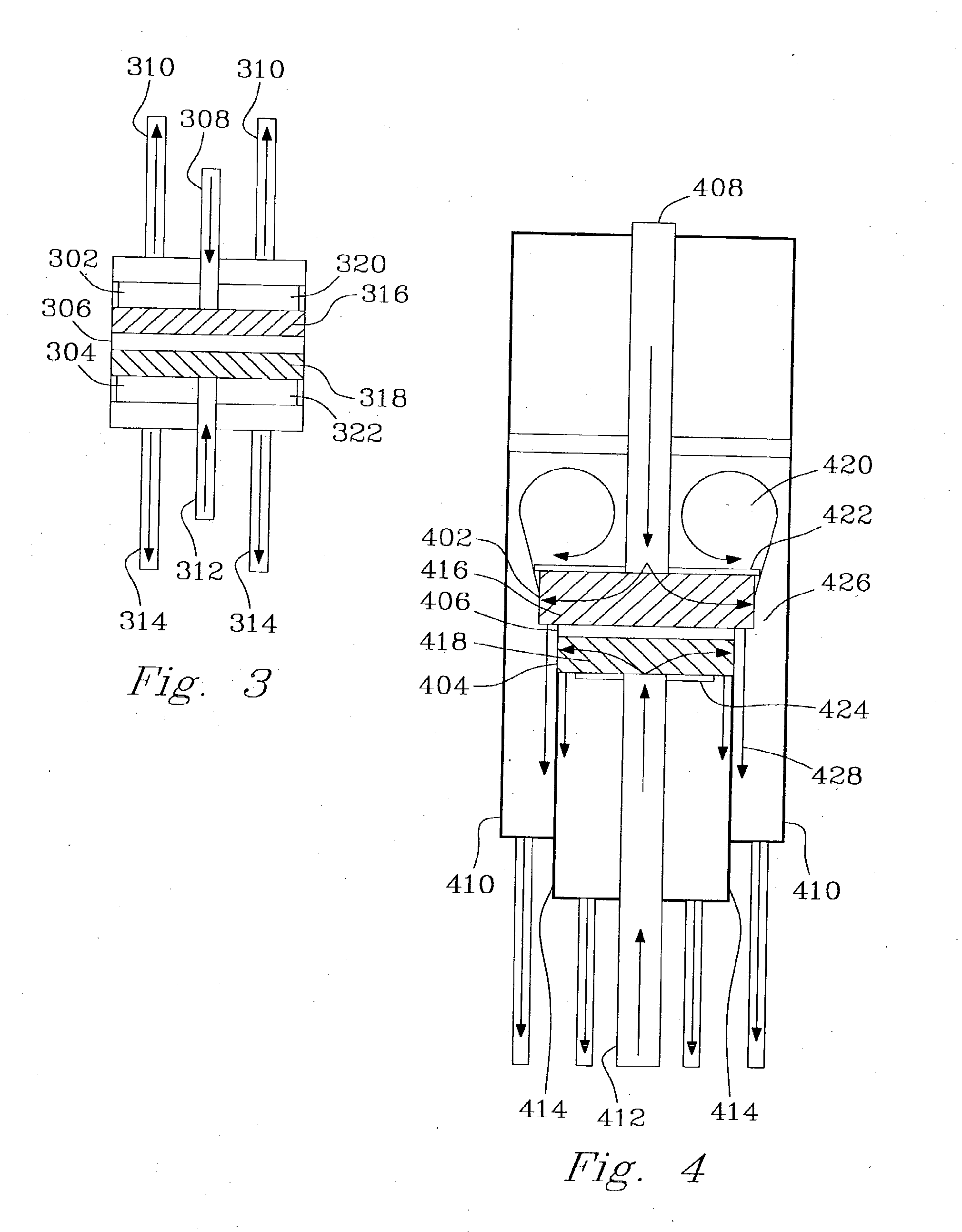Microcombustors, Microreformers, And Methods Involving Combusting Or Reforming Liquids
a micro-combustion and reformer technology, applied in the direction of combustion type, physical/chemical process catalyst, combustion of catalytic materials, etc., can solve the problems of low efficiency of current battery technology, low efficiency of thermally efficient fuel reformer, and many fuel cells that require hydrogen gas having very low levels of carbon monoxide (co) contamination, etc., to achieve the effect of desirable performance capability and conversion and/or thermal efficiency reduction
- Summary
- Abstract
- Description
- Claims
- Application Information
AI Technical Summary
Benefits of technology
Problems solved by technology
Method used
Image
Examples
example 1
[0136]An integrated fuel processor system composed of two vaporizers / preheaters, a reformer, catalytic combustor, and heat exchanger was built and tested. For each of these designs the manufacture and assembly were performed in the same fashion. Metal pieces were cut and machined from standard stainless steel stock. Ceramic pieces were formed and machined using standard ceramics molding and shaping techniques. Tubing and fittings were cut to fit as required.
[0137]The following example is for a device such as illustrated in FIG. 3. For preassembly, all of the tubing, catalyst pieces, and respective reactor parts were cut per specifications. Plungers were joined to tubing using standard, high-temperature adhesives. In the alternative, high-temperature soldering could be used for some or all joins. All tubing and the plunger assemblies were inserted through the end-caps or end-seals and set to their appropriate positions for final assembly.
[0138]The first step in the assembly process w...
example 2
[0146]The device illustrated in FIG. 7 was fabricated similarly to the descriptions in Example 1. The combustion catalyst was Pt on alumina that was coated onto a FeCrAlY felt support. On the reforming side of the device, a porous reforming catalyst felt was inserted into the channel. The diameter of the felt (0.26 inch, 0.66 cm) was the same as the inner diameter of the cylinder. Then, a porous plunger (having a center hole through the center with an inlet tube through the hole) was pressed onto the catalyst felt. In this case, the porous plunger was also a porous reforming catalyst felt. Prior to insertion, a laser was used to form a hole in the center of the porous plunger. Alternative techniques such as punching a hole through a felt prior to depositing a catalyst coating may alternatively be used. The reforming catalyst felts were prepared by coating a FeCrAlY felt with alumina followed by depositing Pd.
[0147]Then, 16 mg of a steam reforming powder catalyst was poured in. This ...
PUM
| Property | Measurement | Unit |
|---|---|---|
| volume | aaaaa | aaaaa |
| temperature | aaaaa | aaaaa |
| temperature | aaaaa | aaaaa |
Abstract
Description
Claims
Application Information
 Login to View More
Login to View More - R&D
- Intellectual Property
- Life Sciences
- Materials
- Tech Scout
- Unparalleled Data Quality
- Higher Quality Content
- 60% Fewer Hallucinations
Browse by: Latest US Patents, China's latest patents, Technical Efficacy Thesaurus, Application Domain, Technology Topic, Popular Technical Reports.
© 2025 PatSnap. All rights reserved.Legal|Privacy policy|Modern Slavery Act Transparency Statement|Sitemap|About US| Contact US: help@patsnap.com



